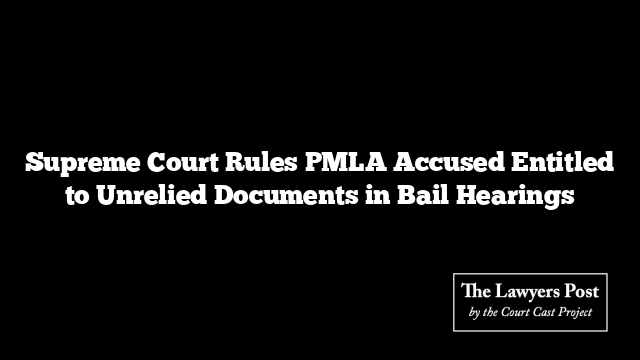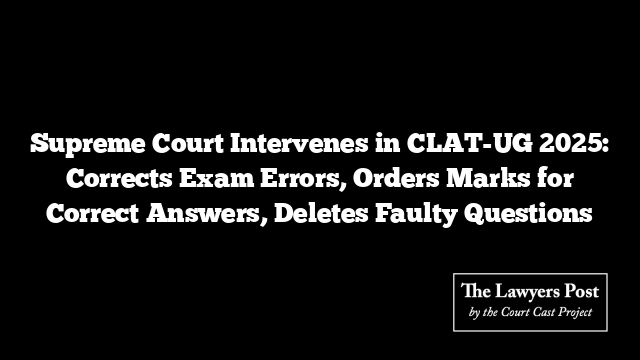In a landmark ruling, the Supreme Court has affirmed that individuals accused under the Prevention of Money Laundering Act (PMLA) are entitled to a list of materials not relied upon by the Directorate of Enforcement (ED) during their investigation. This pivotal judgment ensures that accused persons are informed about documents and statements collected by the ED but later dismissed in the prosecution complaint, enabling them to access these materials at the defence stage.
The Court emphasized that this right extends even to bail hearings, where an accused can request such documents. A liberal approach should be adopted in granting these requests, with denials reserved for exceptional cases. The ruling underlines the importance of a fair trial as enshrined in Article 21 of the Constitution, highlighting the accused’s right to defend themselves effectively with all available evidence.
In the judgment, Justice Abhay S. Oka clarified that the accused must have knowledge of all materials in the possession of the prosecution, whether relied upon or not. This is critical to allow the defence to seek relevant documents under Section 91 of the CrPC, especially if those materials could potentially support their case. The Court stressed that an accused’s ability to challenge the prosecution’s evidence and request the production of specific documents is an integral part of ensuring a fair trial.
Moreover, the Court ruled that the accused may also request documents during the stage of presenting their defence, applying Section 233 CrPC to compel the production of materials from third parties or the prosecution. The Court noted that while the accused has the right to cross-examine prosecution witnesses based on these documents, such requests should be considered only in limited circumstances under Section 233(3) CrPC.
In cases where the accused seeks unrelied upon documents during bail proceedings under Section 45 of the PMLA, the ED can object if disclosing these documents might hinder an ongoing investigation. However, the Court emphasized that such documents should be disclosed unless the court finds a legitimate reason to withhold them, ensuring that the accused’s constitutional rights are not violated.
The ruling addressed the growing concern that denying access to potentially exculpatory evidence could undermine the accused’s ability to defend themselves. The Court also acknowledged that the reverse burden imposed by PMLA makes the early availability of such documents even more critical to a fair defence.
This judgment arose from an appeal challenging a Delhi High Court decision that had denied access to unrelied documents at the pre-trial stage. The appellants argued that this refusal violated their right to a fair trial, particularly under Article 21 of the Constitution. Senior advocates representing the appellants underscored that the prosecution’s reluctance to provide these documents interfered with the accused’s ability to prepare a robust defence.
With this decision, the Supreme Court has reinforced the principle that in criminal trials, transparency and access to evidence are vital to ensuring justice, particularly in cases governed by complex legislation like the PMLA.




